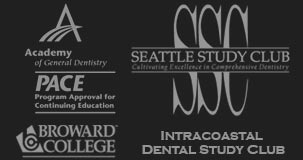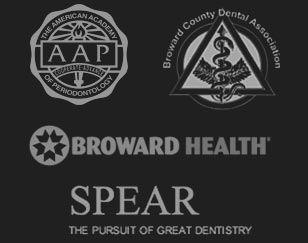SEDATION
Do not plan to do anything today except rest at home if you have taken a sedative pill. It will take a few hours for the drowsiness produced by the sedation to wear off. You may need assistance when walking from room to room for the remainder of the day.
NAUSEA
Sometimes common when taking any medication or having sedation. It can usually be prevented by ensuring you eat frequently. If nausea is a problem, slowly eat saltine crackers and sip Pepsi-Cola over ice at frequent intervals.
FACIAL COMPRESSES
Day of surgery— ice only! 20 minutes on and 20 minutes off for the remainder of the day. Do not sleep overnight with ice pack on.
Day after surgery— wet heat only! 20 minutes every 2 hours throughout the day or when you get home from work at night. Wet, steamy washcloth works well, and can be re-heated in microwave or crockpot full of water.
Should you have any bad discomfort or swelling, continue warm compresses as much as possible until you notice a significant improvement.
BLEEDING
Bleeding is well controlled prior to your discharge. However, some amount of oozing is perfectly normal. If gauze was placed in your mouth keep it in for approximately 1-2 hours. You may replace this gauze as needed with new gauze given to you.
Apply pressure with gauze manually or by biting with gauze over the surgical site if bleeding continues. If you run out of gauze you may use a wet tea bag or purchase gauze from any pharmacy.
Refrain from vigorous rinsing and spitting for the first 24 hours to prevent blood clot destabilization. If profuse bleeding unexpectedly occurs and is uncontrollable, call our office.
SWELLING
Apply cold packs to the face adjacent to the affected surgical areas for the first 48 hours to reduce swelling. Cold packs are to be applied intermittently 15 minutes on 15 minutes off. Starting on the third post-operative day, heat packs may be used in the same manner as above to reduce any residual swelling. In addition, warm salt water rinses may begin on the third post-operative day. Use a tall glass of tap water as warm as you can tolerate, mix in a teaspoon of salt and rinse and expectorate. Moderate swelling is normal. As long as you are comfortable, do not be alarmed.
PAIN
Moderate amounts of discomfort can be expected from all minor oral surgical procedures. Continue taking the prescribed pain medications as directed. Do not allow the pain to catch up with you. Take the medications on schedule to help control as well as prevent the pain. If severe pain occurs or if you are uncomfortable and cannot gain relief by taking the prescribed medications as directed, please call our office.
MEDICATIONS
It is imperative that you take all medications as prescribed. Antibiotics are prescribed to prevent infection and must be taken for the full 7 to 10 days to be effective. Anti-inflammatory and pain medications are prescribed to prevent and reduce swelling and pain.
NUMBNESS
Long acting local anesthetics are commonly used. Therefore, you may expect numbness of the gum tissues, lips and tongue for as long as 12 hours. Great care must be exercised to prevent biting or maceration of the lips and tongue. If numbness persists after 12 hours, call our office.
BRUISING
Minor amounts of bruising around the cheeks, lips, neck and face are normal. However, if the bruised area extends over the neck area and enlarges over your chest please call our office.
SUTURES
Do not disturb your stitches. Both dissolvable and non-dissolvable stitches are commonly used. Dissolvable stitches will begin to untie in 1 to 2 weeks. If you feel the stitches are coming undone before 3 days or if you feel loose excess gum tissue, please call our office.
DIET
Following surgery, a SOFT diet must be maintained for at least 2 weeks in order to minimize trauma to the surgical sites which can effect healing. In some situations, a longer period of time is required. Dr. Cook and Dr. Kligerman will discuss this with you if you require a longer soft diet period. Try to chew on sides not affected by surgery if possible.
HYGIENE
A special mouth rinse, Chlorhexidine was given or prescribed to you. It is vital to rinse with this solution two to three times per day for three minutes at a time. Toothpaste interferes with Chlorhexidine. Therefore, rinse with the Chlorhexidine one hour before or after toothpaste use, or discontinue toothpaste use with toothbrushing. Chlorhexidine is an antibacterial agent and will help keep the healing surgical areas clean. Do not be alarmed if Chlorhexidine causes tooth staining or changes taste perception. The staining is removable and taste sensation will return when Chlorhexidine is discontinued. In addition to the Chlorhexidine rinsing, continue brushing as usual in all other areas (excluding the surgical sites), using a soft bristle toothbrush, and exercise great care to prevent trauma from your toothbrush to the surgical sites.
DRESSINGS
Following certain surgical procedures, a periodontal dressing may be used to cover and protect the surgical site. If a dressing was placed in your mouth, try not to disturb it with hard foods or by brushing. It is common for pieces of the dressing material to come loose. If this occurs within the first two days following surgery, call the office. The area may need to be re-dressed. If the dressing comes loose after this time, continue with proper oral hygiene as outlined above.
ACTIVITY
Limit moderate to high physical activity for two weeks following surgery. This includes jogging or running, aerobics, and heavy housework. Walking and light housework is permitted as tolerated.
ALCOHOL AND TOBACCO
Refrain from alcohol consumption for 24 hours following surgery and 48 hours if IV anesthetics were used. Smoking severely compromises tissue healing. Refrain from smoking for as long as possible or at least 2 weeks following surgery.


